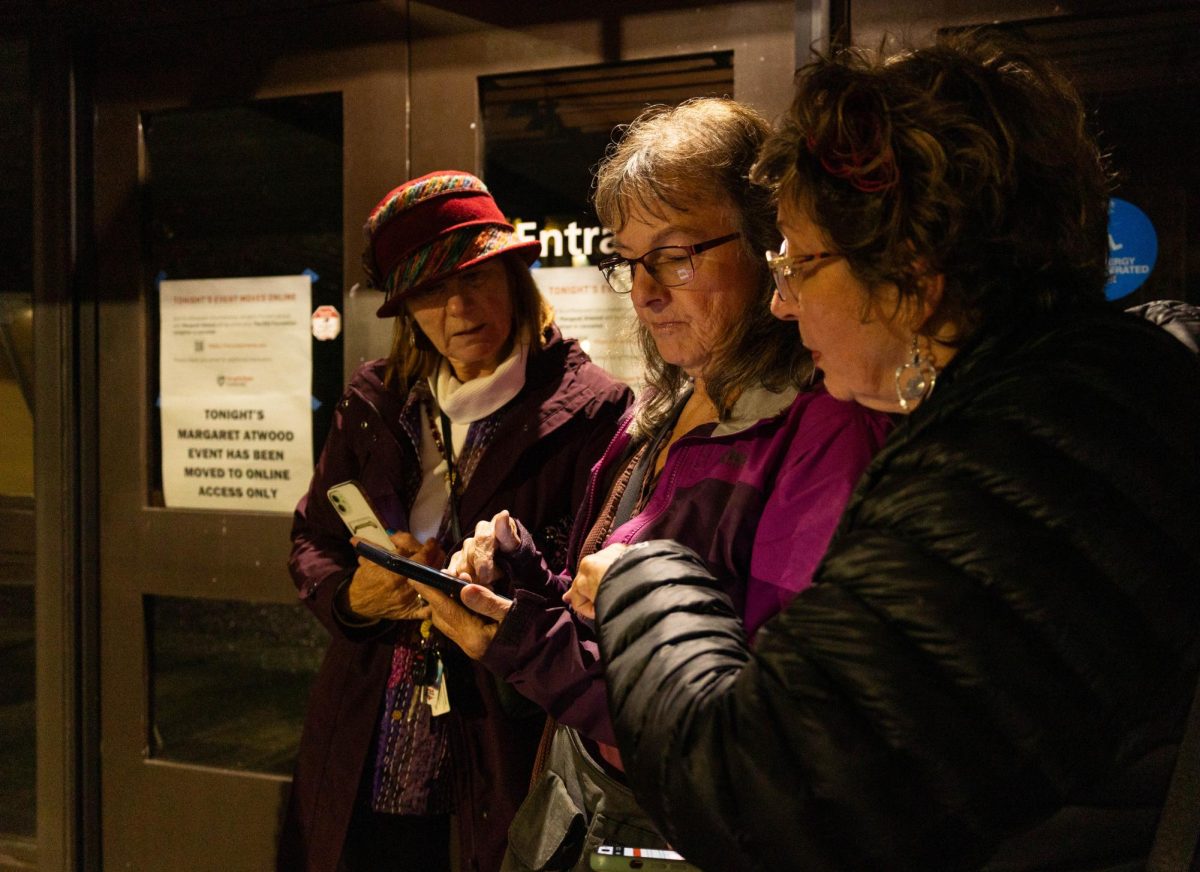Editor’s Note: This version has been updated with an explanation of the difference between non-fee-funded and fee-funded departments.
A resolution to help Oregon State University student workers struggling with inflation has been struck down by the Associated Students of OSU.
Resolution SR-83.01, or “Resolution for a Living Wage for Student Workers,” called for ASOSU to support an increase from the current Corvallis’ minimum wage of $14.20 to a “living wage” of $16.65 across the entirety of OSU’s campus for all student workers.
The resolution was brought to ASOSU by a group called “OSU Student Workers,” which is self-described as an “advocacy campaign by and for student workers at OSU.”
“(The resolution) was based around a petition that the OSUSW have been circulating for a couple of weeks now,” said Matteo Paola, former ASOSU president and current Student Fee Committee Chair who supports OSUSW living wage resolution.
The petition gathered hundreds of signatures in support of the living wage, according to the resolution.
Paola said his rent had increased 14% last year, and many students he talked to faced the same reality. The minimum wage adjustment was significantly less than what students would need to stay ahead of the cost of living in Corvallis.
The resolution was non-binding, according to Paola. This means passing the resolution would not directly force campus employers to raise wages, but indicate ASOSU supports the requests of the OSUSW group.
According to ASOSU Senator Chandler Donahey, it’s important to note there are two different subsets of departments in which student workers get paid: non-fee funded and incidental student fee-funded.
Non-fee funded units pay employees through their own revenue while student fee-funded departments pay employees through fees OSU students pay each term.
The original push for increasing student fees was by ASOSU in 2022, advocating for a minimum wage of $15 per hour, which was eventually passed at $15.15 by OSU Division of Student Affairs. Based on the cost-of-living-adjustment at the time, the wage became what is now $15.90 per hour for fee-funded departments.
OSUSW adjusted these numbers based on the current Consumer Price Index to $16.65 for all students.
“We should pay students today what $15 was worth when that figure was successfully proposed. In that sense, we are saying that student workers shouldn’t be getting wages that are worth less than they were yesterday,” said Dylan Perfect, a member of OSUSW, former vice president of ASOSU in the 2021-22 academic year and current archivist for ASOSU.
Fee-funded departments’ wages are directly controlled by ASOSU, which means they already plan to increase the minimum wage this year to around $16.35, according to Donahey.
The goal of the resolution was to close the disparity between $14.20 per hour for non-fee funded departments and $15.90 for fee-funded departments.
Though ASOSU can only change fee-funded department wages, the resolution claimed that if ASOSU supported the resolution for all departments, it could potentially invite non-fee funded departments to join in increasing wages.
“Previous living wage campaigns for incidental fee-funded workers have directly resulted in other campus employers increasing their wages to stay competitive,” Perfect said. “For instance, UHDS and student affairs broadly raised wages above $15 in response to the increases in 2021. The evidence shows that this advocacy for better wages raises the standards for everyone.
On the other hand, according to ASOSU President Carissa O’Donnell and Vice President Dakota Canzano, passage of the resolution by ASOSU realistically would not affect wages for non-fee funded OSU student workers, making it inequitable.
“I understand many of the concerns raised by members of the senate, but am disappointed they didn’t put in more work to communicate with the students arguing in support of the resolution,” Paola said.
O’Donnell and Canzano stressed the fact ASOSU has been in support of raising the current student wage in a statement released today.
However, they felt it was crucial to work towards an equitable wage increase for all students, of which they believed the resolution did not support.
“(The administration) voiced that they would need to lay off students to increase wages. We want to maximize student employment in a sustainable and equitable way,” O’Donnell said during the meeting.
Paola said he is grateful to ASOSU members who voted in favor of the resolution.
“The students who had shown up to advocate for it, myself included, felt fairly let down by the ASOSU Senate,” Paola said. “I’ve been in ASOSU for four years and have never seen so much grassroots support for a resolution. The initial senate meeting where it was discussed had to turn people away as the room reached capacity.”
Donahey was quite confident the resolution would be passed going into the senate meeting.
“As for next steps, I don’t know which direction the senate will take, if they decide to pursue further action on it,” Donahey said.
There were several gallery members in the meeting that left immediately after the resolution was dismissed, obviously frustrated with the outcome.
Donahey described the remainder of the meeting as “dejected” after the vote against the resolution.
“It’s unfortunate that ASOSU may have passed up an opportunity to show support for a campaign that hundreds of their constituents brought to them. But it won’t prevent us from continuing to advocate for a cost-of-living adjustment that maintains the progress won over the past two years,” Perfect said.
Perfect said OSUSW is just getting started in their campaign for better wages. He says they aim to build a sense of community and “self-governance” for student workers at OSU.
“We heard and are acting on the underlying message from students: the current pay structure is not reflective of their needs,” the statement from O’Donnell and Canzano states. “This process has given us insight into the request from students and the deliverables they expect from their student government, and we ask you continue to hold us accountable as we progress.”


















































































































